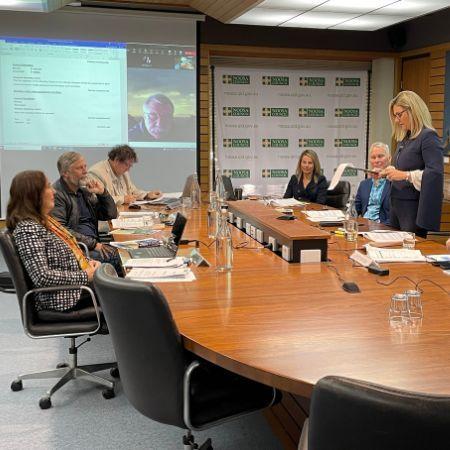Economy at forefront of record 2022-23 Budget
Noosa Council’s 2022-23 budget centres on boosting the local economy, protecting our environment and maintaining levels of service for the shire.

Noosa Council today adopted the 2022-23 budget, which centres on boosting the local economy, protecting Noosa's environment and maintaining levels of service for the shire.
The record $160 million budget strives to create stronger connections to our community and deliver legacy style infrastructure to make Noosa an even better place to live, work and play.
Mayor Clare Stewart said balancing the budget has been “challenging” and “difficult” amid a six per cent increase in inflation across south-east Queensland.
“Like any household budget, we are not immune to the surging construction and fuel costs as well as the rising cost of living pressures,”
“Significant land valuation increases have also had an impact,” she said.
Cr Stewart said Council has worked hard to minimise the impact of the significant State Government land valuations flowing through to general rates charges
“We have reduced an on average 36 per cent valuation increase to much more sustainable levels for property rates to lessen the impact on the hip pocket.”
“This budget has a renewed focus on rebuilding a strong foundation for the future, helping boost the economy while continuing to support our community through its post-pandemic recovery.”
The minimum general rate will increase by 5 percent which is lower than the south-east Queensland CPI.
Cr Stewart said once waste charges and levies are included, for the average Noosa ratepayer, the total rates bill increase equals about $1.53 per week.
“We have endeavoured to provide some relief to cost-of-living pressures where we can and have listened to the community during our budget engagement process.
“We have invested more in protecting the environment by boosting environmental grants by almost $100,000 and the environment levy is back to pre-pandemic levels of $70 to ensure we can continue to invest in future projects,” she said.
Council has a $42 million capital works program, which will see $17 million directed towards road and transport infrastructure work.
Resealing many of the shire’s roads is on the radar with an allocation of $5.3 million. Over 40 per cent of the reseal funding is directed at hinterland roads.
“We have focussed more on our roads and infrastructure spend to ensure safety and keep our assets at a level the community expects,” Cr Stewart said.
“There has been an historical underspend on many roads, and we need to and are addressing that.”
All Levies have returned to pre-pandemic levels, with the Environment Levy now at $70 and the Heritage Levy at $10.
Cr Stewart said council had deliberately adopted a measured approach to deal with the significant jump in land valuations to ease the burden where possible.
“It’s been a triple whammy with increased land valuations, the February floods and recovering from COVID-19 have created enormous challenges in drafting this budget,” she said.
Investing in business and boosting economic growth is another focus.
“Feedback from the Liveability Survey made it quite clear, that residents rated protecting our natural environment, neighbourhood safety and the importance of local business as three key priorities and that’s been our focus in shaping this budget,” she said.
Cr Stewart said support for the more vulnerable in our community would continue through council’s Hardship Policy and Pensioner Rebate.
Budget at a glance:
- 5 per cent increase on minimum general rate
- $22.3 million for roads and bridges
- $7.8 million waste management, resource recovery and environment initiatives
- $2.3 million on parks and pathways
- Development of a new 5-year Corporate Strategic Plan
- Go Noosa Free weekend bus trial continues
- Continuing the highly popular Living Well Noosa to support wellbeing and a healthy active community
- Development of Destination Management Plan
The cost on councils to manage waste continues to rise.
The standard household bin collection charge increases by 5 per cent, which allows Council to deliver a new landfill, improve resource recovery through potential landfill-to-gas options and other waste diversion improvements.
“I want to ensure frontline services like parks, roads, libraries and waste transfer facilities are improved,” Mayor Stewart said.
“It’s important we continue to lay the foundations to see our shire revive, thrive and recover from the recent natural disasters through prudent financial management,” Cr Stewart said.
